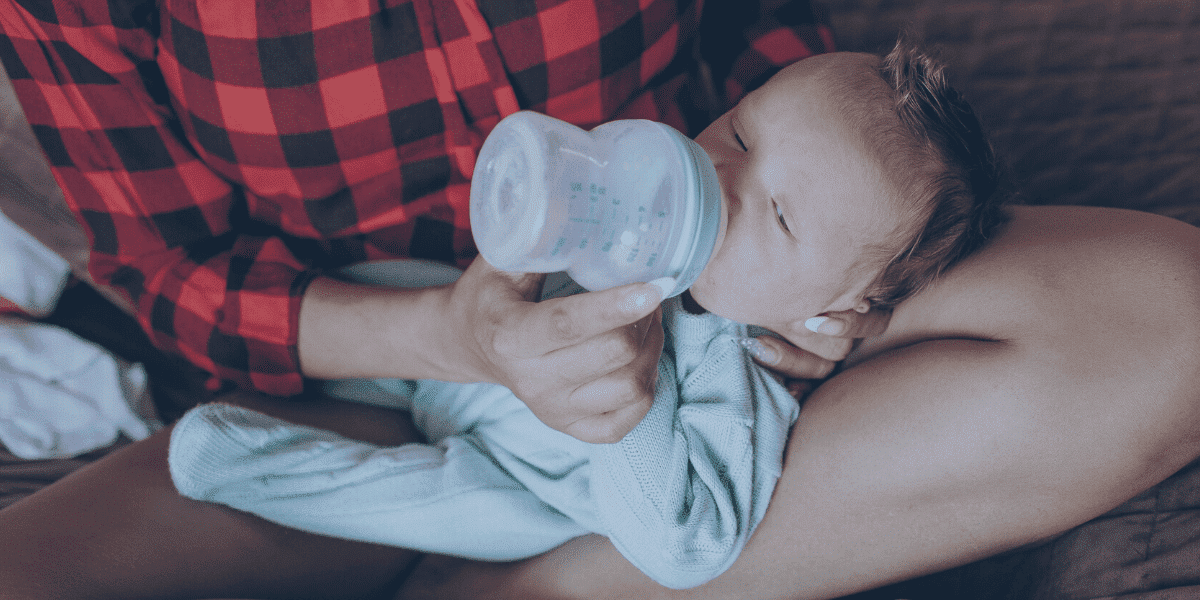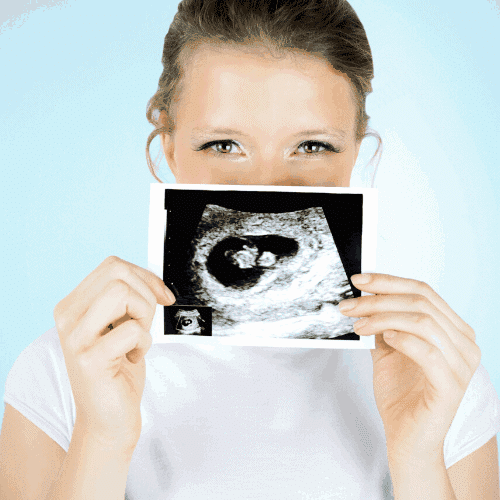Pregnancy is a gift. However, it comes with drastic hormonal changes, decreased immunity system, and your body becomes intolerant or sensitive to some foods.
Nearly seventy percent of the world’s population has a reduced ability to digest lactose, the sugar found in milk and other dairy products. Consuming dairy products can cause uncomfortable symptoms like bloating, gas, and diarrhea for lactose intolerants.
You may wonder how to manage your symptoms if you are lactose intolerant and pregnant. Fortunately, there are several ways to manage lactose intolerance during pregnancy.
This article covers all you should know about lactose intolerance after pregnancy. In addition, we will cover a lactose-free diet for you and your baby.
As an Amazon Associate, I earn from qualifying purchases. The links below may be affiliate links. Please read my disclosure policy for more information.
What is lactose intolerance?

Lactose intolerance is a condition that results in the inability to digest lactose, a sugar found in milk and dairy products. Some of the most common symptoms of lactose intolerance include a bloated stomach, cramps, and diarrhea.
Lactose intolerance is more common in adults than children and it’s more common in certain ethnic groups than in others. It is often caused by a lack of the enzyme lactase needed to break down lactose. In addition, some women get lactose intolerance after having a baby because their bodies produce less lactase after pregnancy.
In simple words, lactose intolerance is when your body can not digest the sugars found in dairy products or animal milk. The body uses these sugars to have energy for daily activities.
Does Pregnancy Cause Lactose Intolerance?
Yes, pregnancy can cause lactose intolerance. When you get pregnant, your immune system will decrease, so the body doesn’t fight the fetus.
But, after giving birth, the immune system will return, and the body will try to find something to react to. That’s why some women can be lactose intolerant after having a baby.
Can Pregnancy Reverse Lactose Intolerance?
Yes, pregnancy can reverse lactose intolerance. But, as you might know, a pregnant woman’s body suffers many changes, whether it is the reverse of lactose intolerance or your body suddenly becoming able to handle animal milk or other dairy products.
Feeling bloated or gassy after drinking that glass of milk or yogurt means your body rejects lactose after pregnancy. The same goes in reverse.
If your body can now handle all those dairy products, it means the pregnancy reverses your lactose intolerance, which is part of the package of being pregnant.
So don’t worry if your body changes or reacts differently to some foods after pregnancy. According to the study made by Medscape, international statistics say that almost 75% of the world’s population is lactose intolerant.
Can Lactose Intolerance Affect Pregnancy or my Baby?

No, being lactose intolerant will not affect your pregnancy or your baby. The nutrients found in lactose products, such as calcium, zinc, and vitamin D, are beneficial for the baby and yourself and its recommended.
However, don’t worry if you’re stomach gets upset when you ingest these products. You can find the same nutrients in other lactose-free products.
Getting enough calcium it’s important for your baby’s growth. Calcium, for example, can be found in lactose-free products, including broccoli, salmon, kale, and canned beans.
What are the symptoms of lactose intolerance during pregnancy?
The most common symptoms of lactose intolerance during pregnancy include nausea, abdominal pain, a bloated stomach, or cramps and pain. You can see if you’re lactose intolerant up to one hour after ingesting animal milk or dairy products.
- Nausea
- Vomiting
- Abdominal pain
- Bloated stomach
- Stomach pain or cramps
- Flatulence
- Diarrhea

How is lactose intolerance diagnosed?
Lactose intolerance can be diagnosed by doing a simple blood or breath test. In addition, lactose intolerance can be genetic.
However, it’s always better to make the blood or breath test since the genetic test can give you a false negative. Regardless, speak with your doctor and explain your symptoms.
A lactose tolerance test will evaluate your blood sugar levels. On the other hand, a breath test will see the hydrogen in your breath after lactose ingestion.
You can also test it at home, as known as eliminating test. Remove lactose products altogether from your diet and see how your body reacts.
You can make it for two weeks adn after introducing the dairy products to see how your body reacts.
What is the treatment for lactose intolerance?
There is no treatment for lactose intolerance. However, you can replace the regular milk with lactose-free milk such as almond or rice milk. In addition, there are over-the-counter (OTC) supplements to treat the intolerance.
To avoid taking any pills, there are other substitutes you can add to your diet if you experience lactose intolerance after your pregnancy. These include fruits and vegetables, eggs, and milk or yogurt alternatives.
Lactose-Free Diet for Pregnant Women
- Fruits and vegetables
- Eggs
- Soy foods
- Nuts
- Milk alternatives (rice or almond milk)
- Lactose-free yogurts (almond or coconut)
- Fish (salmon or tuna)
If you have never been lactose intolerant before your pregnancy and have doubts about what you can eat, a good technique is to check the labels of the products to see if it contains lactose.
How can I tell if my baby has lactose sensitivity?
There are symptoms the baby will have in case of lactose sensitivity. These symptoms include:
- Diarrhea
- Tummy discomfort and pain
- Gas
- Cramps
- Crying when pooing
Lactose sensitivity in babies under one year old is very rare since the intolerance typically shows up later when they are more grown. However, talking with your healthcare professional is crucial if you have any doubts.
The outcome will probably be an eliminating test, where you remove any products that contain lactose for two to three weeks and see how the baby reacts to it.
Lactose products to avoid for the baby
All the products you will find below can be replaced with lactose-free products. In addition, It’s recommended to make the required changes in your diet with the help of your healthcare professional.
- Formula
- Ice cream
- Cheese
- Pancakes
- Yogurts
- Puddings
- Cookies

5 Tips to manage Lactose Intolerance Symptoms
You may wonder how to manage your symptoms if you are lactose intolerant and pregnant. Fortunately, there are several ways to manage lactose intolerance during pregnancy.
Some tips are listed below.
- Try lactose-free dairy products. Lactose-free dairy products are available at most grocery stores. They are made with milk treated to break down the lactose.
- Try dairy substitutes. There are several dairy substitutes available, including soy milk, almond milk, and rice milk.
- Take lactase supplements. Lactase supplements are available OTC and can help you digest lactose.
- Limit your dairy intake. If you are having trouble digesting dairy, try limiting your information to a few servings a week.
- Talk to your doctor. Talk to your doctor if you have trouble managing your lactose intolerance during pregnancy. They may be able to recommend other strategies for managing your symptoms.
Is Lactose Intolerance different than a milk allergy?
Yes, lactose intolerance is different than a milk allergy. Lactose intolerance is when your system can’t digest lactose.
A milk allergy is an immune system response to the proteins in milk. If you’re pregnant, you should consult a healthcare professional before making any changes to your diet.
For example, lactose intolerance can be managed by reducing or eliminating dairy products from the diet. Likewise, a milk allergy should be managed by avoiding all dairy products.
Is Lactose Intolerance an allergy?
Lactose intolerance is not an allergic reaction. According to the National Health Service (NHS), people with lactose intolerance can still consume small amounts of dairy products.
However, people with allergies can have severe consequences if ingested.
As this article states, lactose intolerance is when the body cannot digest lactose, a sugar found in milk and other dairy products. It occurs because the body lacks the enzyme lactase needed to break down lactose into a form the body can absorb.
When lactose is not digested correctly, it can cause uncomfortable symptoms such as bloating, gas, and diarrhea. An allergy is when the body overreacts to substances called allergens.
When someone with an allergy comes in contact with an allergen, the body’s immune system releases histamines and chemicals, causing symptoms such as a runny nose.
Conclusion

Lactose intolerance is a common problem that many women experience after pregnancy.
While the cause of lactose intolerance is not fully understood, it is thought that the hormone changes that occur during and after pregnancy may play a role. Fortunately, several solutions can help relieve the symptoms.
Most lactose-intolerant women can consume tiny amounts of dairy products without experiencing any issues. Furthermore, there are a variety of lactose-free dairy products on the market.
However, if you are lactose intolerant, carefully read the labels to ensure that the product does not contain any hidden lactose.
Disclaimer: This article is meant to provide some instant information but should not be replaced by professional guidance.






